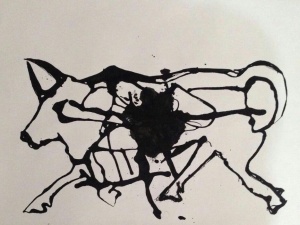Published 2023-11-01
Keywords
- autobiography,
- ancient history,
- bible,
- Greco,
- Greco-Roman culture
- literature ...More
How to Cite
Abstract
Autobiography, as subgenre, sometimes underestimated, has its antecedents since the antiquity, although the history of the literature and the scholars of the autobiography consider Saint Augustine´s work Confessiones the oldest autobiography writing. Nevertheless the previous historical testimonies give evidence of the existence of this literary exercise before century V A.D. The protoautobiographic testimonies would be the monumental stelae and obelisks of the Mesopotamian and Egyptian civilizations respectively. These petrographies, which without being written by kings and pharaohs, narrate the achievements of these in first person to get them to be known (and sometimes feared) by their subjects. It can be considered as the oldest autobiographical exercise of written form to the book of Hosea, old testament, written in century VIII B.C. While centuries later of the Graeco-Roman culture scarcely have news of this type of literary resource; Such is the case of Bionius' testimony of Boristhenes in the work of Diogenes of Laertius or the news of writings called Memoirs which Suetonius relates at the beginning of the second century AD. Flavian Josephus (37-101 AD) Roman historian of Jewish origin wrote in Jewish Antiquities what could be considered as an autobiography in the strict sense at the end of the first century.
But prior to Suetonius and Flavius Josephus, St. Paul put fragments of his life into his letters or epistles and thus converted this fragments of his life into testimony to justify the foundations of the new religion he preached. Thus the apostle of the Gentiles inaugurated the interiorist writings which was very well to the patristics philosophy where St. Augustine´s work: Confessions found his best expositor.

